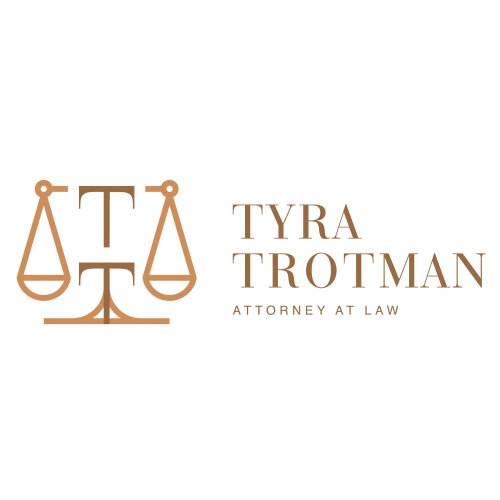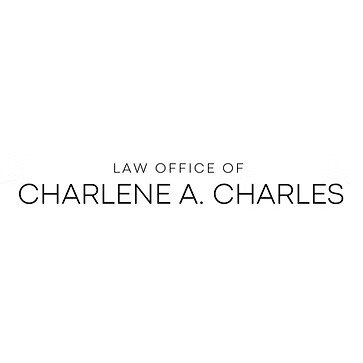Best Sanctions & Export Controls Lawyers in Worthing
Share your needs with us, get contacted by law firms.
Free. Takes 2 min.
List of the best lawyers in Worthing, Barbados
About Sanctions & Export Controls Law in Worthing, Barbados
Sanctions and export controls refer to the legal frameworks that regulate the movement of goods, services, and technology across borders, as well as restrictions imposed for national security, foreign policy, or economic reasons. In Worthing, Barbados, these laws are designed to ensure that exports and imports comply with international obligations, such as United Nations sanctions, and align with the country's national interests. Local businesses, residents, and foreign nationals operating in or through the Worthing area must understand how these regulations impact their activities to avoid legal consequences.
Why You May Need a Lawyer
Individuals and businesses may require legal assistance with sanctions and export controls for various reasons. For example, companies exporting goods or technology may be unsure if their products are subject to regulation. Importers might face questions about compliance with embargoes or restricted country lists. Legal challenges can also arise when authorities allege violations of export laws, enforce seizures, or initiate investigations. Additionally, innocent mistakes in documentation or misunderstandings of sanction targets can expose individuals to hefty penalties. A lawyer can help navigate these complex legal requirements, provide guidance on due diligence, and represent clients in any disputes or proceedings with regulatory agencies.
Local Laws Overview
Barbados enforces its own export control laws, often in line with its commitments to international agreements. Key elements include:
- National legislation restricting the export of certain goods, such as military equipment, dual-use items, and sensitive technologies.
- Import and export licensing requirements managed by relevant government authorities.
- Adherence to international sanctions imposed by bodies like the United Nations Security Council, which may prohibit transactions with specific countries or entities.
- Regulations concerning anti-terrorism and anti-money laundering, which can affect transactions involving sanctioned individuals.
- Penalties for non-compliance, including fines, forfeiture of goods, and, in some cases, criminal prosecution.
Businesses operating in Worthing must maintain up-to-date records and ensure all activities comply with current regulations to avoid sanctions and legal issues.
Frequently Asked Questions
What are sanctions in the context of Barbados?
Sanctions refer to restrictions or prohibitions imposed by the Barbadian government or through international agreements that limit certain economic or commercial activities with specified countries, organizations, or individuals.
What are export controls?
Export controls are laws that regulate the export of specific products, services, or technologies to foreign countries for security, economic, or foreign policy reasons.
Who needs to comply with sanctions and export controls in Worthing?
Any individual, business, or entity involved in exporting or importing goods, services, or technology from or into Barbados must comply with these laws, regardless of the scale of the activity.
Are there goods that cannot be exported from Barbados?
Yes, Barbados restricts or prohibits the export of specific items, particularly military items, hazardous materials, dual-use technologies, and goods related to sanctioned countries or persons.
What is the process for obtaining an export license?
Exporters must apply to designated government agencies, such as the Ministry of International Business and Industry, and provide detailed information on the goods, destination, and end-user. Approvals are subject to the goods and jurisdictions involved.
What happens if I violate sanctions or export control laws?
Violations can lead to administrative penalties, fines, seizure of assets, cancellation of licenses, and in some cases, criminal charges.
How do I check if an entity or country is under sanction?
You can review the lists published by the Barbados government or consult international sanction lists, such as those issued by the United Nations, to ensure compliance.
Is there a difference between international sanctions and those applied locally in Barbados?
Barbados may adopt international sanctions, like those from the United Nations, but can also impose its own restrictions depending on its national interests or foreign policy.
Can legal advice help if I am under investigation for a sanctions violation?
Yes, a lawyer experienced in sanctions and export controls can provide legal counsel, represent you during investigations, and help mitigate potential penalties.
Are there exceptions or exemptions to export controls in Barbados?
Certain exemptions may apply for humanitarian reasons, academic exchanges, or specific end-users, but these must be formally requested and approved by the relevant authorities.
Additional Resources
For further information or support on sanctions and export controls in Worthing, Barbados, consider the following resources:
- Barbados Ministry of International Business and Industry - oversees export control regulations and licensing.
- Customs and Excise Department - handles import and export documentation and enforcement.
- Barbados Financial Intelligence Unit - monitors anti-money laundering and counter-terrorism financing compliance.
- United Nations Security Council Sanctions Committees - provides updated lists of sanctioned countries and entities.
- Private legal practitioners specializing in international trade and compliance law.
Next Steps
If you need legal assistance with sanctions and export controls in Worthing, Barbados, start by gathering all relevant information about your business activities, including the nature of goods or services involved, destinations, and partners. Consult with a legal professional who specializes in this area to assess your compliance status and receive personalized advice. Early intervention can help prevent costly mistakes and ensure your operations adhere to all applicable laws. Consider scheduling a consultation, preparing necessary documentation, and staying informed about legal developments that may affect your activities.
Lawzana helps you find the best lawyers and law firms in Worthing through a curated and pre-screened list of qualified legal professionals. Our platform offers rankings and detailed profiles of attorneys and law firms, allowing you to compare based on practice areas, including Sanctions & Export Controls, experience, and client feedback.
Each profile includes a description of the firm's areas of practice, client reviews, team members and partners, year of establishment, spoken languages, office locations, contact information, social media presence, and any published articles or resources. Most firms on our platform speak English and are experienced in both local and international legal matters.
Get a quote from top-rated law firms in Worthing, Barbados — quickly, securely, and without unnecessary hassle.
Disclaimer:
The information provided on this page is for general informational purposes only and does not constitute legal advice. While we strive to ensure the accuracy and relevance of the content, legal information may change over time, and interpretations of the law can vary. You should always consult with a qualified legal professional for advice specific to your situation.
We disclaim all liability for actions taken or not taken based on the content of this page. If you believe any information is incorrect or outdated, please contact us, and we will review and update it where appropriate.











